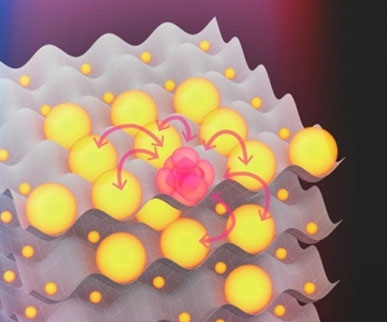Avalanche dephasing in large Rydberg systems

Engineering complex quantum states requires controlling coherent interactions in many-body systems. Atoms with a highly excited electron, called Rydberg atoms, offer both strong and controllable interactions, due to their giant polarizablity. They represent a promissing pathway to quantum-coherent contol over a many-body system, which is required for manny applications in quantum simulation and quantum computation. However, the electron can only remain for a limited time in the excited state: it rapidly transitions to a lower energy state and emits a photon, which limkts the time available for an experiemnt. While this limitation is manageable for a few interacting Rydberg atoms (say, a few dozens), complex phenomena can arise between many strongly interacting atoms.
In particular, we recently observed an extremely large dephasing in large Rydberg ensembles. Due to the dissipative nature of the system, this is equivalent to a loss of coherence. In a first paper (pre-print here), we highlight the existance of this mecanism and point out its prevalence in many large Rydberg system. This process is therefore becoming important to consider as current quantum simulation experiments aim at scaling up the number of interacting atoms. However much of this complex dephasing effect is still unknown: How ubiquitous is it? What are the exact dynamics? What are its relevant timescales? How can we model it? Can we mitigate or control it? Our work is a first effort to answer these questions.
In subsequent articles, we explored the dephasing mecanism in more details. The work described in Phys. Rev. A 97.2 023424 (2018) (pre-print) analyses the complex competition between blockade and antiblockade in these systems, an important feature for modelling the quantum collective behavior.
In Phys. Rev. A 96.5, 053409 (2017) (pre-print), we look at how distinct Rydberg (hyperfine) populations indirectly induce decoherence on each other, to experimentally refine our understanding of the dynamics involved. At early times, we found an avalanche-like mecanism makes the dephasing grows rapidly under continuous excitation. This explains why the observed dephasing is extremely fast. We also discuss several approaches to circumvent these effects. We conclude that, while challenging, they can be mitigated. This is good news :)

